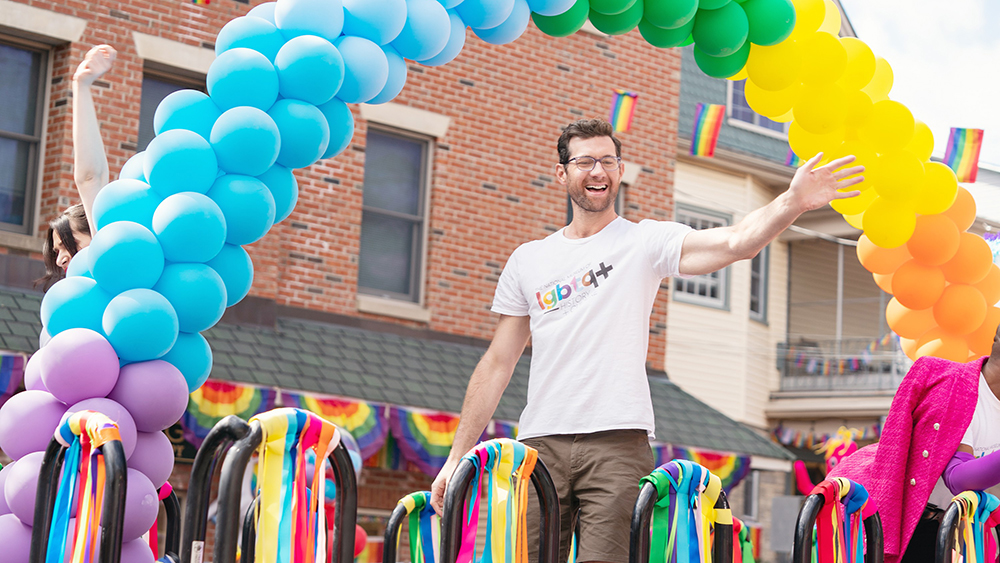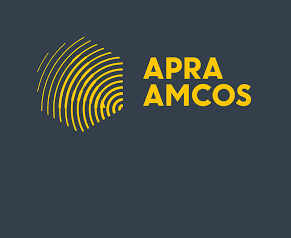“Bros” is another R-rated, envelope-pushing look at a man in a state of arrested development from Nicholas Stoller. It’s the kind of look at male neurosis, usually the kind of mania the pops up a decade shy of mid-life crisis time, that has been the director’s stock in trade in comedies like “Forgetting Sarah Marshall,” “Get Him to the Greek” and “Neighbors.”
But this film has an important twist. It has an entirely LGBTQ cast and centers on two gay men with serious commitment issues — a stretch for Stoller, who is heterosexual. So he turned to Billy Eichner, who he knew from working together on “Neighbors 2: Sorority Rising” and “Friends From College,” to help him fashion an authentically queer “meet cute.” “Bros,” the culmination of a multi-year writing process that Stoller likens to therapy (“making a movie like this is a lot like ‘Prince of Tides,’ he says). When it debuts on Friday, “Bros” will make history as the first major studio LGBTQ rom-com to open exclusively in theaters.

Nicholas Stoller directs Billy Eichner in “Bros”
Caitlin Cronenberg for Variety
Stoller spoke with Variety about convincing Eichner to dig deep, the responsibility that comes with shattering this particular glass ceiling, and directing the film’s many raunchy sexy scenes (everything’s coming up foursomes!).
Who came up with the idea to make “Bros”?
I worked with Billy on “Friends From College,” and what I discovered on the first season was that he wasn’t just really funny. He had good acting chops. Then we screened the pilot in a movie theater and every time Billy was on screen, the audience exploded in laughter, even if he was just giving a look. That made me realize… this guy is a total movie star.
I love romantic comedies and, for years, I’ve wondered why no one has made the big studio R-rated comedy about two gay men falling in love. That’s not my story. I’m straight. But I was intrigued by the idea and proposed partnering on a script for a film that Billy would star in and I would direct.
What was Billy’s response?
Well, it turned out that he had a kind of embryonic idea for years that was a bit broader. It was about him falling for a bro-y guy and was based a little bit on a relationship that he had had. That was sort of the genesis of it. Before we started, I laid down three rules: One was it needed a story; the second was that it had to be really honest; and the third was that since this was a studio comedy, it needed to have a happy ending.
Do the best comedies mine from personal experience?
They kind of do. I’ve done this a few times where I’ve been involved in tailoring a movie for a specific comedian. Whether it’s Jason Segel in ‘Forgetting Sarah Marshall,’ where he put so much of himself into it, or ‘Get Him to the Greek’ where Russell Brand explored his addiction, these films act as a multi-year therapy process. A lot of it is me asking a lot of questions and the two of us talking about our relationships or our issues and what we think about love and blah, blah, blah. And then you find a way to make all that amusing.
At the end of the day, this is a gay rom-com and you are a straight man. How did that impact your approach?
I knew from the beginning that this could not be a straight story, but with two guys. I am very aware that love in the LGBTQ+ community is very different than how my wife and I met and got married. I also knew that I did not know a lot of the specifics. At the end of the day, everybody’s story is different. There’s billions of love stories on this planet and each one is different. I have gay friends who are married and have kids and their lives are essentially indistinguishable from mine. And I have straight friends who are single and dating lots of women and are my age. This movie was very specific to Billy’s story and his life and his experience and his neurosis and vulnerabilities and insecurities and how he puts up blocks that prevent people from getting close to him. It was about him specifically. The more specific you are in telling a story, the more universal it becomes.
Since this is first major studio theatrical rom-com with gay protagonists, were you nervous about what would happen if it bombed? Did you feel a lot of responsible to make a hit?
Because of my privilege as a straight guy, I was so naively optimistic all the time that it was going to be great. Billy was more concerned about that, and understandably so. He felt like he’d been given this gigantic opportunity and if he screwed it up, the door could close again. But to his credit, he did not let that scare him into watering down the story. He did not let that dissuade him from being as specific and as brutal and blunt and honest as he was. Every once in awhile he’d be like, ‘What if they don’t end up together?’ That’s when I’d step in and go, ‘No, no, no, that can’t happen.’ That was the only creative note I would hammer on.
There’s a monologue about half-way through “Bros,” in which Billy’s character talks about all the homophobia he’s faced and the doors that were closed to him because he was openly gay. Did Billy put a lot of his personal struggles into that moment?
We were having a debate about the movie and I would say, ‘Why aren’t you dating anybody?’ And he would say, ‘I was too busy.’ We’d go back and forth and finally I was like, ‘You have to tell me what’s going on because this movie can’t just be about a guy who is too obsessed with work and errands to fall in love.’ And then he told me a version of the story that became that monologue. It took a long time for Billy to open up, because it’s very important to him that he not be seen as a victim. He is a strong guy. He’s one of the strongest people I’ve ever met. He is one of the only people I’ve ever met in Hollywood who is completely self made. He didn’t rely on a mentor or connections. He did this himself.
For a romantic comedy, “Bros” has a lot of sex. How did you approach those scenes?
I don’t understand how you can make an R-rated romantic comedy and not have sex in it. Sex is part of love. It can be honest and awkward, and that can be hilarious. The only thing I’m uncomfortable shooting is earnest sex or sexy sex. I would suck at directing ‘Fifty Shades of Grey.’
From Variety US




































